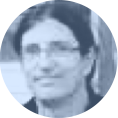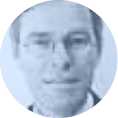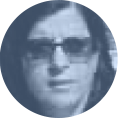The Quality Reference Group brings together twelve experts in the different topics treated in the surveys of the Special Initiative. The members of the Quality Reference Group have supported the preparation of the questions by evaluating the initial suggestions and coming with input and comments how to improve the content in light of the current debates.
- Mr. Norbert Steinhaus, Science Shops
- Mr. Hans van der Loo, Advisor to President of WBCSD
- Prof. Martina Schraudner, Fraunhofer-Gesellschaft and the Technical University Berlin
- Prof. Els Rommes, Radboud University Nijmegen
- Dr. David Smith, Royal College of Surgeons in Ireland
- Prof. Johannes Rath, University of Vienna
- Niamh Brennan, Trinity College Dublin
- Natalia Manola, University of Athens, OpenAIRE
- Prof. Jean-Pierre Alix, CNRS
- Alexander Gerber, German Research Centre for Science & Innovation Communication
- Christopher Coenen, Karlsruhe Institute of Technology
- Dr. Rinie van Est, Rathenau Institute

Mr. Norbert Steinhaus
Science Shops
Norbert Steinhaus joined the Bonn Science Shop in 1988 and became a Science Shop board member in 1990. For more than 12 years he has cooperated in international projects on training and mentoring Science Shops (TRAMS), citizen participation in science and technology (CIPAST) or Public Engagement in Research and Researchers Engaging with Society (PERARES) and coordinated an educational European project for primary schools and kindergartens, and SOUFFLEARNING, a project for the transfer of innovation in training staff of SMEs. Since the end of 2007 he is the coordinator and international contact point of LIVING KNOWLEDGE, the international Science Shop network. Future activities will focus on European co-operation on Responsible Research and Innovation.

Mr. Hans van der Loo
Advisor to President of WBCSD
Advisor to the President of the World Business Council for Sustainable Development. Expert on systemic risks and global resilience; advocate of strengthening EU Talent Pipeline Development. Over 30 years international experience; former Vice President EU Liaison for Royal Dutch Shell. Coalition builder & storyteller on future, energy and sustainability matters. Lecturer at World Economic Forum, IMD and Nyenrode University.

Prof. Martina Schraudner
Fraunhofer-Gesellschaft and the Technical University Berlin
Prof. Schraudner is head of the department of Gender and Diversity in Organisations at the Institute for Machine Tools and Factory Management of the Technische Universität Berlin. Her research currently focuses on the integration of different perspectives in the innovation process already in very early stages of research planning. Another field of her work is innovative research initiatives. Martina Schraudner has served on several innovation committees of the German government. She is also a member of a European Expert Group. Dr. Schraudner, a biologist, became Professor at the Technische Universität Berlin in 2008. Up to now, she works at the Fraunhofer Headquarter in the field of strategic research planning.

Prof. Els Rommes
Radboud University Nijmegen
Dr. Els Rommes is assistant Professor at the Institute for Gender Studies, Radboud University Nijmegen and guest professor at the Rhein-Waal University of Applied Sciences. Her research and publication areas include gendered design and use of ICTs, representations of Science, Engineering and Technology in the media and teenagers’ professional choices. She is (co)author of the books ‘Gender Scripts and the Internet; The Design and Use of Amsterdam’s Digital City’ (2002); ‘Gender Perspectives on Information Society Technology’ (2007); and ‘Technologies of Inclusion; Bridging the Gender Gap in the Information Society’ (2011).

Dr. David Smith
Royal College of Surgeons in Ireland
David Smith is Associate Professor of Health Care Ethics in Royal College of Surgeons in Ireland and Director of the MSc in Health Care Ethics and Law in RCSI and RCSI Bahrain. He lectures on Health Care Ethics in Trinity College Dublin, University College Dublin, the Royal College of Physicians of Ireland and Hibernia College. He is an Ethics Consultant to a number of Healthcare Systems in Ireland. He was a member of the Irish Council for Bioethics. He is a member of the National Advisory Committee on Bioethics Ethics and the National Council of the Forum on End of Life in Ireland. He is also a member of a number of Research Ethics Committees in Ireland.

Prof. Johannes Rath
University of Vienna
Dr. Johannes Rath is head of the Central Laboratory at the the Life Science Faculty of the University of Vienna. His academic interests and lectures focus on ethics, safety and security issues. He has chaired international groups of experts carrying out ethics reviews and audits of research at the European level. He was chairman and member of several European working groups developing guidance documents on research ethics. Johannes has served as ethics advisor and member of ethics advisory groups to a number of European research undertakings. Previously, Johannes was working for the United Nations on international disarmament and still is actively engaged in this issue by focusing on the role of civil society and ethics in supporting non-proliferation of weapons of mass destruction. He holds academic degrees in molecular biology, law, toxicology and chemistry.

Niamh Brennan, Trinity College Dublin
Trinity College Dublin
Niamh Brennan is Programme Manager for Research Informatics in Trinity College Library Dublin. Niamh is a member of several national and international groups working on open access to research outputs and enabling their improved reporting, retrieval and evaluation. She is a member of the management councils of two key Irish journals in economics and social sciences and has partnered in a number of research projects in digital humanities, international development and social sciences. Niamh coordinates a national sectoral project in Ireland, funded by the HEA and managed by the IUA, which develops research reporting standards and research evaluation methodologies.

Natalia Manola
University of Athens, OpenAIRE
Natalia is a Senior Software Engineer holding a B.Sc. in Physics from the University of Athens, Greece, and an M.Sc. in Electrical and Computer Engineering from the University of Wisconsin at Madison, USA. The systems she has designed and implemented include biotechnology and genetic applications, embedded financial monitoring systems, heterogeneous data integration systems and end-user personalized functionalities on digital libraries. She is currently the project manager of OpenAIRE, and has participated and technically managed several R&D projects (DRIVER & DRIVER-II, ESPAS, CHESS) funded by the European Union or by the national government.

Prof. Jean-Pierre Alix
CNRS
Jean-Pierre ALIX has been the Executive of the ‘Science et société en mutation’ Program in CNRS from 2006 to 2010, and is a member of the ‘Conseil Supérieur de la Recherche et de la Technologie’ (from 2004). He graduated in economy, from HEC School and from the University of Paris. He was an Advisor to the Minister of education and research for research policy (1995–1997). Since 1998, his main interest has focused on the relations between science and society, due to the regular decrease of opinion trust in science and its applications. J.P. Alix has organised European events dedicated to this topic (EU French presidency), has published workshops dedicated to SiS, in OECD-Global Science Forum and in the European Science Foundation (ESF).

Alexander Gerber
German Research Centre for Science & Innovation Communication
Alexander Gerber is Managing Director of the German Research Center for Science & Innovation Communication (INNOKOMM). He is member of the Governing Board of Euroscience, chair of its Editorial Board, member of the ESOF Supervisory Board, and the Working Group on Science Communication. He also chairs the Stakeholders Assembly of the EU FP7 science communication network “PLACES”. Mr. Gerber is member of the Board of Curators of the German Association of Specialised Journalists (DFJV) and of the Advisory Board of the Hightech Press Club (HPC), as well as General Secretary of the German Association for Science and Technolgy Publishing (TELI).

Christopher Coenen
Karlsruhe Institute of Technology
Christopher Coenen is a senior researcher at the Institute for Technology Assessment and Systems Analysis within Karlsruhe Institute of Technology. As team member or project leader, he has conducted more than 15 research projects on behalf of parliaments, the EC, and other institutions. He is coordinator of an EC-funded Mobilisation and Mutual Learning Action Plan on synthetic biology and editor of the journal ‘NanoEthics’. His recent co-authored publications include, “Synthetic genomics and synthetic biology applications between hopes and concerns” (in Current Genomics), “Biocybernetic adaptation and privacy” (in ‘Innovation’), and “National ethics advisory bodies in the emerging landscape of responsible research and innovation” (in NanoEthics).

Dr. Rinie van Est
Rathenau Institute
Rinie van Est joined the Rathenau Institute in August 1997. He is responsible for identifying new developments at the convergence of science, technology, politics and society, with a particular focus on the emerging technologies such as nanotechnology, biotechnology, information technology and cognitive science. The combination of these disciplines, known as the ‘NBIC convergence’, is likely to bring about a new technological ‘wave’, reshaping our future with major developments such as synthetic biology, Ambient Intelligence and virtual worlds. Rinie also devotes attention to the complex issues involved in sustainable energy provision.
